
Director
The remarkable history and legacy of one of the most important works of art to come out of the age of AIDS -- Bill T. Jones’ tour-de-force ballet "D-Man in the Waters."

Director of Photography
The remarkable history and legacy of one of the most important works of art to come out of the age of AIDS -- Bill T. Jones’ tour-de-force ballet "D-Man in the Waters."

Director of Photography
In advance of the 2020 Presidential election, Kill Chain: The Cyber War on America's Elections takes a deep dive into the weaknesses of today's election technology, investigating the startling vulnerabilities in America's voting systems and the alarming risks they pose to our democracy.
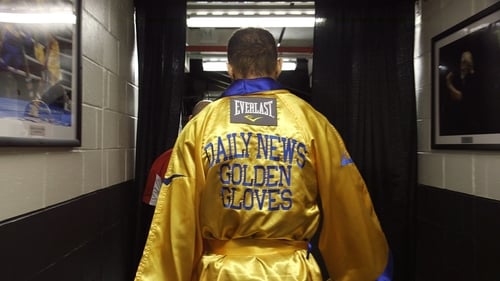
Director of Photography
Three extraordinary young people battle to change their lives through the three-month odyssey of the New York Daily News Golden Gloves - the biggest, oldest, most important amateur boxing tournament in the world.
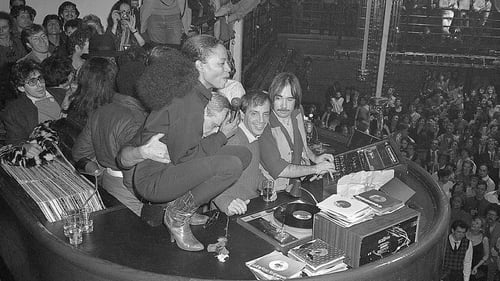
Director of Photography
Studio 54 was the epicenter of 70s hedonism - a place that not only redefined the nightclub, but also came to symbolize an entire era. Its co-owners, Ian Schrager and Steve Rubell, two friends from Brooklyn, seemed to come out of nowhere to suddenly preside over a new kind of New York society. Now, 39 years after the velvet rope was first slung across the club's hallowed threshold, a feature documentary tells the real story behind the greatest club of all time.

Director of Photography
Filmed in five locations on a single day, One Vote captures the compelling stories of diverse voters on Election Day 2016. At times funny, surprising and heart-wrenching, the film eschews partisan politics in favor of an honest portrayal.
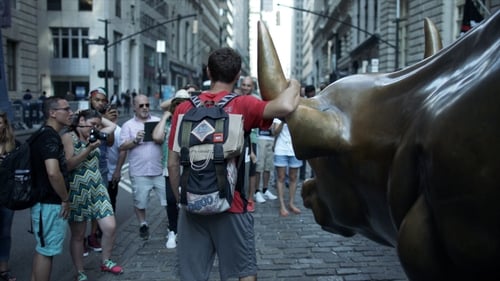
Director of Photography
An unsettling and eye-opening Wall Street horror story about Chinese companies, the American stock market, and the opportunistic greed behind the biggest heist you've never heard of.

Director of Photography
Griffin Dunne’s years-in-the-making documentary portrait of his aunt Joan Didion moves with the spirit of her uncannily lucid writing: the film simultaneously expands and zeroes in, covering a vast stretch of turbulent cultural history with elegance and candor.

Director of Photography
Born into one of the wealthiest and best-known families in American history, Gloria Vanderbilt has lived in the public eye for more than 90 years, unapologetically pursuing love, family and career, while experiencing extreme tragedy and tremendous success side by side. This documentary features a series of candid conversations as Vanderbilt and her youngest son, Anderson Cooper, look back at her remarkable life.
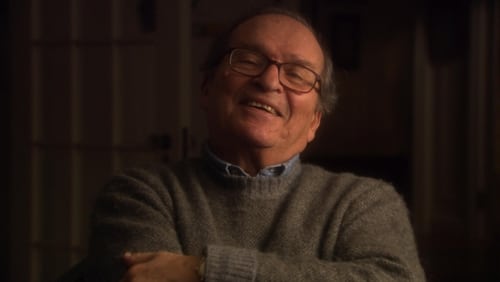
Director of Photography
An analysis of director Sidney Lumet's work (12 Angry Men, Dog Day Afternoon, Before The Devil Knows You're Dead) in his own words, based on a five-day interview recorded shortly before his death.

Director of Photography
Documentary exploring the human tendency to be dishonest. Inspired by the work of social scientist, Dan Ariely, the film interweaves personal stories, expert opinions, behavioral experiments, and archival footage to reveal how and why people lie.

Cinematography
Tiger Tiger follows Dr. Alan Rabinowitz, renowned big cat conservationist, as he travels deep into the primordial landscape of the Sundarbans - a tidal mangrove forest spanning the India-Bangladesh border. Known as one of the most dangerous places on Earth, the Sundarbans is the domain of what may be the largest, wildest remaining tiger population. Only 3,000 tigers remain in the wild throughout Asia, and as Alan journeys through the remote landscape of the Sundarbans, he confronts the treacherous terrain both tiger and man must navigate in their mutual struggle to survive. This may be his last journey; diagnosed with leukemia, Alan must face his own mortality as he races to save one of the world's most charismatic animals from the razor's edge of extinction.
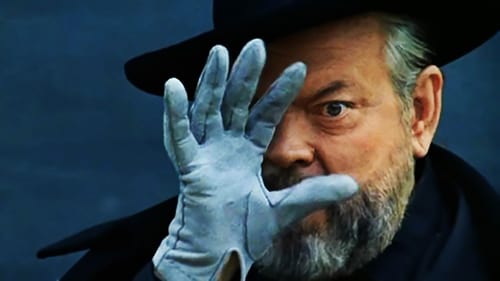
Director of Photography
The extraordinary life of Orson Welles (1915-85), an enigma of Hollywood, an irreducible independent creator: a musical prodigy, an excellent painter, a master of theater and radio, a modern Shakespeare, a magician who was always searching for a new trick to surprise his audience, a romantic and legendary figure who lived only for cinema.

Director of Photography
A documentary on the former mayor of New York City, Ed Koch.

Director of Photography
In June 2003, the Episcopal Church in New Hampshire came under fire when it became the first to elect an openly gay man, Gene Robinson, as a bishop. Since that flash point, Robinson has been at the center of the contentious battle for LGBT people to receive full acceptance in the faith.
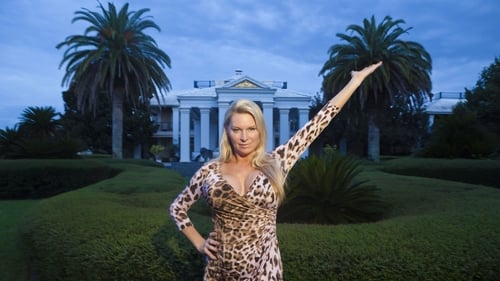
Director of Photography
With the epic dimensions of a Shakespearean tragedy, The Queen of Versailles follows billionaires Jackie and David’s rags-to-riches story to uncover the innate virtues and flaws of their American dream. We open on the triumphant construction of the biggest house in America, a sprawling, 90,000-square-foot mansion inspired by Versailles. Since a booming time-share business built on the real-estate bubble is financing it, the economic crisis brings progress to a halt and seals the fate of its owners. We witness the impact of this turn of fortune over the next two years in a riveting film fraught with delusion, denial, and self-effacing humor.

Director of Photography
No one in recorded history has suffered a fate quite like Lafayette. Once, he was the most famous man in the world; today, few people know who he was or what he accomplished. Ever since he died, there has been a conflict over the true meaning of his accomplishments. It is time to re-evaluate his crucial role in the establishment of America's democracy.

Director of Photography
For over 60 years, Studs Terkel elevated the voices and experiences of everyday Americans through his skillful interviews on radio, in books and on TV. This documentary takes a fond and illuminating look back at one of America's most influential authors and media personalities whose curiosity about people never dimmed over the course of a long and brilliant career.

Director of Photography
A documentary look at the changing interpretations of the first amendment of the U.S. Constitution - laws and court cases that have alternatively broadened and narrowed the amendment's protection of free speech and assembly. The film's thesis is that post-9/11 the government has seized unprecedented license to surveil, intimidate, arrest, and detain citizens and foreigners alike. The film also looks back to the Pentagon Papers' case and compares it to cases since 9/11 dealing with high school students' speech and protesters marching in New York City during the 2004 Republican convention. Comment comes from a range of scholars, pundits, and advocates.

Director of Photography
Film which travels inside the singular world of one of Italy's most famous fashion designers, Valentino Garavani, documenting the colourful and dramatic closing act of his celebrated career and capturing the end of an era in global fashion. However, at the heart of the film is a love story - the unique relationship between Valentino and his business partner and companion of 50 years, Giancarlo Giammetti. Capturing intimate moments in the lives of two of Italy's richest and most famous men, the film lifts the curtain on the final act of a nearly 50-year reign at the top of the glamorous and fiercely competitive world of fashion. (Storyville)
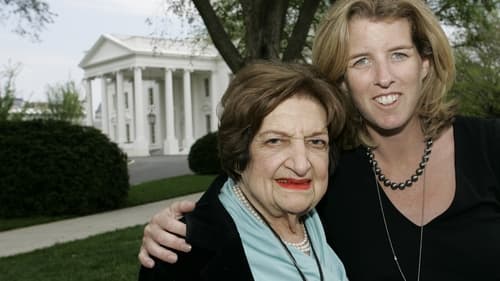
Director of Photography
This documentary profiles iconic journalist Helen Thomas who has held a front-row seat at White House press conferences for more than 60 years.
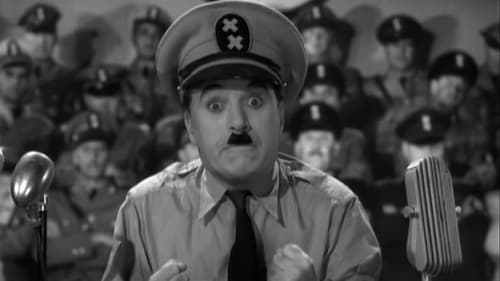
Director of Photography
Daniel Anker’s 90-minute documentary takes on over 60 years of a very complex subject: Hollywood’s complicated, often contradictory relationship with Nazi Germany and the Holocaust. The questions it raises go right the very nature of how film functions in our culture, and while hardly exhaustive, Anker’s film makes for a good, thought provoking starting point.
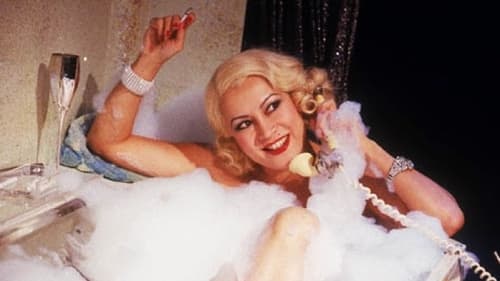
Camera Operator
Mary Haines's life falls apart and her social circle shatters after her husband's affair is revealed. Filmed version of the 2001 Broadway revival with the original cast reprising their roles.

Director of Photography
Adolescents confront issues of sexual activity, sexual orientation, violence, alcohol abuse and depression.

Camera Operator
April 5th, 2000... On the heels of their unanimously acclaimed albums "Appalachia Waltz" and "Appalachian Journey", "Appalachian Journey Live In Concert" captures three of the world's most extraordinary musicians live in concert, along with very special guests James Taylor and Alison Krauss, from their sold-out performance at New York City's Avery Fischer Hall.

Director of Photography
When an innocent young girl finds herself befriended by two sexy, uninhibited girls at a small-town bar, she discovers that they have more planned than just a party-and she's central to the action.

Director of Photography
The actual experiences of New York City subway riders are dramatized in a collection of 10 intriguing and very different vignettes. The tales showcase an ensemble of familiar faces, and range from stories of compassion and love to reflections on violence and loss. Among them: a disabled beggar quarrels with a woman and ruins her shoes with his wheelchair, provoking onlookers to wrath and pity; a skittish tourist proves to be her own worst enemy; a newlywed trysts with a mysterious sexpot; a commuter helplessly witnesses a suicide attempt; and, in the most affecting segment, a young woman grieves over her mother's imminent death.
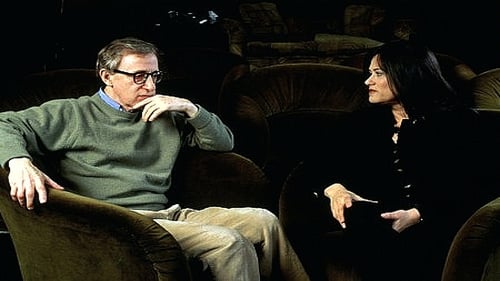
Director of Photography
Wild Man Blues is a 1998 documentary film directed by Barbara Kopple, about the musical avocation of actor/director/comic Woody Allen. The film takes its name from a jazz composition sometimes attributed to Jelly Roll Morton and sometimes to Louis Armstrong and recorded by both (among others). Allen's love of early 20th century New Orleans music is depicted through his 1996 tour of Europe with his New Orleans Jazz Band. Allen has played clarinet with this band for over 25 years. Although Allen's European tour is the film's primary focus, it was also notable as the first major public showcase for Allen's relationship with Soon-Yi Previn.

Director of Photography
Jimmy Burke and his friends steal 10 million from the Lufthansa office in New York. The FBI has no idea who the thieves are until Burke girlfriend gives them a hint. When word leaks out a Mafia boss puts a killer on the gang's trail.

Director of Photography
Isaac Seidel is a highly unconventional New York police-commissioner. He is well-abled in dealing with trouble at the headquarter, the maffia and situations in the streets. His loyalty to his profession and the city he so loves make him do the utmost to solve the problems, even if it means he has to bend the rules.
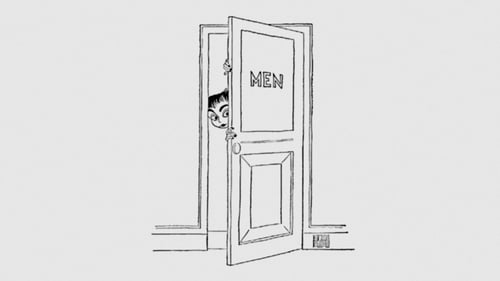
Director of Photography
The story of the legendary wits who lunched daily at the Algonquin Hotel in New York City during the 1920s. The core of the so-called Round Table group included short story and poetry writer Dorothy Parker; comic actor and writer Robert Benchley; The New Yorker founder Harold Ross; columnist and social reformer Heywood Broun; critic Alexander Woollcott; and playwrights George S. Kaufman, Marc Connelly, Edna Ferber and Robert Sherwood.

Director of Photography
EC Comics-inspired weirdness returns with three tales. In the first, a wooden statue of a Native American comes to life to exact vengeance on the murderer of his elderly owners. In the second, four teens are stranded on a raft on a lake with a blob that is hungry. And in the third, a hit and run woman is terrorized by the hitchhiker she accidentally killed... or did she?

Director of Photography
The story of Simon Rodia, the real-life artist who spent 30 years constructing Los Angeles' Watts Towers, a monument to Christopher Columbus, and his fictional relationship with Daniel, a young boy.

Director of Photography
Three sectors of American society hit by recession in the mid-1980s: heartland farms, factory workers out of a job, and the new homeless. In Minnesota, 250 family farms are being repossesed each week; men and women talk about their farms, the nature of their bank loans, the onslaught of corporate farming, and their sorrow and despair. In cities where 3,500 jobs per day go overseas, unemployed workers contemplate their options. The newly homeless talk about the jobs they've lost, "Justice Ville" in Los Angeles (bulldozed by court order), and squatting in New York's abandoned buildings. A family living in a welfare hotel tells their story.

Cinematography
Documentary about the famed Hollywood director.

Director of Photography
A contemporary remake of "Cinderella"
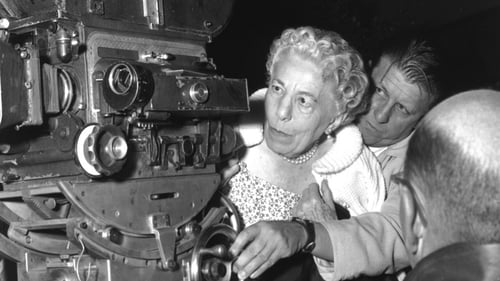
Camera Operator
Biography of the legendary filmmaker directed by his son.

Director of Photography
A teenaged boy goes for a ride with his brother and the brother's friends, who proceed to rob a store and murder the clerk. They are caught and, despite the young boy's protestations, he is convicted of murder and sent to prison. A female social worker assigned to the boy's case not only believes him, but begins to fall in love with him, and determines to either help him prove his innocence or escape.

Director of Photography
In his lifetime, Thomas Merton was hailed as a prophet and censured for his outspoken social criticism. For nearly 27 years he was a monk of the austere Trappist order, where he became an eloquent spiritual writer and mystic as well as an anti-war advocate and witness to peace. Merton: A Film Biography provides the first comprehensive look at this remarkable 20th century religious philosopher who wrote, in addition to his immensely popular autobiography The Seven Storey Mountain, over 60 books on some of the most pressing social issues of our time, some of which are excerpted here. Merton offers an engaging profile of a man whose presence in the world touched millions of people and whose words and thoughts continue to have a profound impact and relevance today.

Editor
This film was made entirely in Ghana and consists of documentary scenes and a fictitious story about a British engineer who wants to import microchips to Africa. But the reaction of the blacks to his plans to build a fully automatic plastic furniture factory surprises him. His faith in technocracy stands opposed to what they know about the environment. When the conflict has reached its climax, a spell is cast upon him... finally, he gives up... but his attitude toward Africa has changed for the better.

Director of Photography
This film was made entirely in Ghana and consists of documentary scenes and a fictitious story about a British engineer who wants to import microchips to Africa. But the reaction of the blacks to his plans to build a fully automatic plastic furniture factory surprises him. His faith in technocracy stands opposed to what they know about the environment. When the conflict has reached its climax, a spell is cast upon him... finally, he gives up... but his attitude toward Africa has changed for the better.

Director of Photography
Joseph L. Mankiewicz discusses his career in a feature-length interview recorded at his New England home and the 1983 Berlin Film Festival.

Cinematography
New York, summer 1983. Jeanne Moreau goes to meet Lillian Gish to film a portrait of her. The star of American silent films invites her to her apartment and discusses her career from its beginnings on film in 1912. She remembers the conditions on stage when she was a child, the first Hollywood blockbuster, D. W. Griffith's Birth of a Nation (1915), and her passion for cinema guided by an inexhaustible curiosity.

Cinematography
Howie Snyder is an archetype: a retired Marine colonel in his mid-40s, a prototypical American entrepreneur struggling to make his business go. Howie's Shakey's Pizza franchise in Muncie, Indiana employs his whole family: wife, nine children and Howie himself. He is the representative of the American Dream: the chance to invest long hours and hard work in exchange for financial security for oneself and family.

Director of Photography
Documentary about the blacklisted folk group, "The Weavers," and the events leading up to their triumphant return to Carnegie Hall.
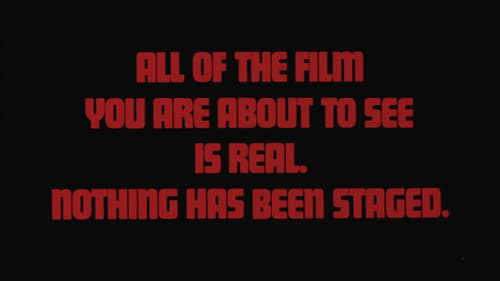
Cinematography
A documentary of the decline of America. Featuring footage (most exclusive to this film) from race riots to serial killers and much-much more.
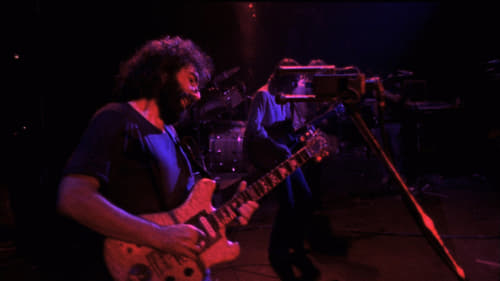
Director of Photography
Released in 1977 and directed by Jerry Garcia, is a film that captures performances from the Grateful Dead's October 1974 five-night stand at the Winterland Ballroom in San Francisco. This end-of-tour run marked the beginning of an extended hiatus for the band, with no shows planned for 1975. The movie also faithfully portrays the burgeoning Deadhead scene. The film features the "Wall of Sound" concert sound system that the Dead used for all of 1974.

Music Consultant
A film by Leo Hurwitz & Peggy Lawson.

Director of Photography
A film by Leo Hurwitz & Peggy Lawson.

Associate Producer
Following his use of art, painting and sculpture, in his work of the previous decades, Hurwitz took on a project for the American Foundation of the Arts aimed on deepening and enriching, for art students, the way in which we see. Working with his second wife, the editor Peggy Lawson, he made four short films comprising The Art of Seeing Series. The films, made without words, are beautiful poems to the pleasure of sight. This is the second part of his series.

Director of Photography
Following his use of art, painting and sculpture, in his work of the previous decades, Hurwitz took on a project for the American Foundation of the Arts aimed on deepening and enriching, for art students, the way in which we see. Working with his second wife, the editor Peggy Lawson, he made four short films comprising The Art of Seeing Series. The films, made without words, are beautiful poems to the pleasure of sight. This is the second part of his series.

Sound
A critical yet sympathetic examination of the anti-war movement in New York City, shot in 1968, one year after the Summer of Love. The film traces the development group of activists on the Lower East Side. We see their growth from isolated, alienated individuals to a politically empowered community. Filmed between the protests at the Pentagon and the demonstrations at the Democratic Convention in Chicago, it includes portraits of Abbie Hoffman, editor Paul Krassner, folksinger Phil Ochs and anarchist Tom "Osha" Neumann.

Director
A critical yet sympathetic examination of the anti-war movement in New York City, shot in 1968, one year after the Summer of Love. The film traces the development group of activists on the Lower East Side. We see their growth from isolated, alienated individuals to a politically empowered community. Filmed between the protests at the Pentagon and the demonstrations at the Democratic Convention in Chicago, it includes portraits of Abbie Hoffman, editor Paul Krassner, folksinger Phil Ochs and anarchist Tom "Osha" Neumann.

Director
First shown on January 30, 1967, FOR LIFE AGAINST THE WAR was an open-call, collective statement from American independent filmmakers disparate in style and sensibility but united by their opposition to the Vietnam War. Part of the protest festival Week of the Angry Arts, the epic compilation film incorporated minute-long segments which were sent from many corners of the country, spliced together and projected. The original presentation of the works was more of an open forum with no curation or selection, and in 2000 Anthology Film Archives preserved a print featuring around 40 films from over 60 submissions.















































